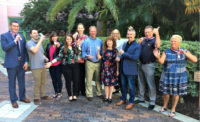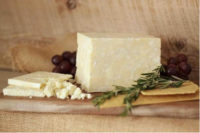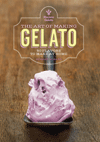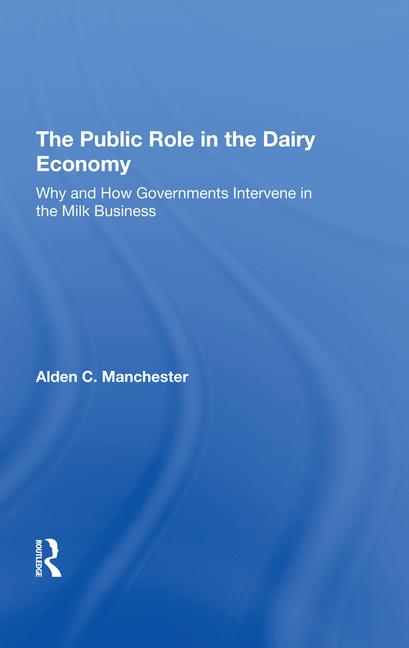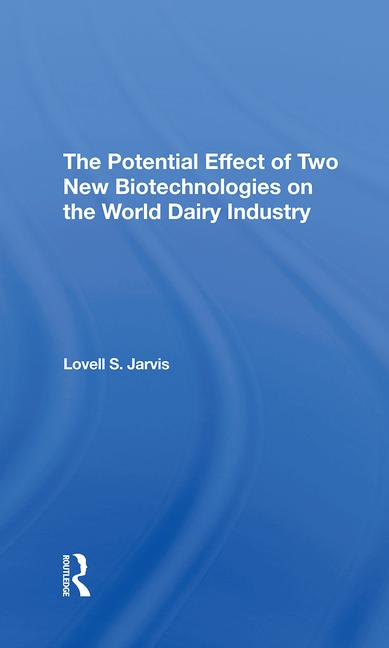The 2014 ACS Judging and Competition, which took place in Sacramento, Calif., in July, saw 1,685 entries of cheeses and cultured dairy products from 248 companies. The entering companies represented 39 U.S. states, four Canadian provinces and Colombia. For the entire competition 325 ribbons were awarded: 89 first place ribbons, 109 second place ribbons and 127 third place ribbons. Taking the top three spots were Farms for City Kids Foundation in Vermont, Point Reyes Farmstead Cheese Co. and Oakdale Cheese & Specialties, both from California. (Oakdale Cheese tied for 3rd place with Sprout Creek Farm, Poughkeepsie, N.Y.; Sprout Creek entered its Eden cheese.) We took a look at three of these companies and the cheeses that stole the show.
French Alpine-style cheese is Best in Show
Spring Brook Farm, Reading, Vt., specializes in making French Alpine-style cheeses and is part of the Farms for City Kids Foundation. Its farmstead cheeses are a unique reflection of both the land in that part of Vermont, as well as the farming and cheese making operations, according to the company. The farm produces two types of cheese: Tarentaise and Reading.
Tarentaise Reserve was awarded Best in Show. The Reserve has a natural washed rind, is semi-firm in texture and aged for a minimum of 18 months. The winning cheese was produced in July 2012. The company also produces a 6-month-aged Tarentaise from raw milk from its own herd of Jersey cows. Tarentaise is a semi-hard washed rind cheese and named after the French Valley which inspired it. It was awarded first place at the competition in the farmstead category. It’s produced the same way as the Reserve, but is aged for six months.
By the time Tarentaise is ready for sale, each wheel (weighing approximately 20 pounds) of cheese has been turned and washed at least 60 times in the farm’s state-of-the-art aging room, according to the company. Depending on the season, the flavor profile can range from bright red berries and floral undertones to deeply brown butter and nutty. All of the company’s cheeses are made using traditional methods originating in the French Alps, hence the Alpine-style.
The second type of cheese produced is a semi-soft washed rind cheese called Reading, named after the Vermont town in which it is made. The Reading is aged three months. The raw milk for this cheese comes from Jersey cows from two small local Vermont dairies the company started a partnership with last year.
“Our goal in working with them has been to provide stability and sustainability to their operations by paying them a fixed price for their milk, removing them from the commodity market and the uncertainty that can come with fluctuating fluid milk prices,” said Cristi Menard, sales manager. “In exchange, they have taken on the responsibility of producing milk to our exacting standards.”
She said the company is happy to play a small part in strengthening the local Vermont agriculture community with this partnership. The company contributes to the community in other ways as well.
The Farms for City Kids Foundation is an educational non-profit organization founded in 1993 with the mission of providing a safe working environment and an educational setting for the school children who spend time on the farm from spring to fall. The foundation engages the children in an agricultural curriculum with the aim of teaching them the importance of agriculture and being good stewards of the environment. Some of the activities offered include working in the aging room, washing and turning the cheese.
All of the company’s cheeses are available across the country, primarily in specialty retail shops. Some are sold in fine restaurants.
A blue cheese not like any other
The family-owned and run Point Reyes Farmstead Cheese Co., Point Reyes Station, Calif., was awarded 2nd Best in Show for its Bay Blue cheese. The cheese company produces four different artisan cheeses: Bay Blue (its newest cheese, introduced in 2012), Original Blue (the company’s best-selling cheese), Toma (a farmer’s cheese, good for cooking and melting) and fresh mozzarella.
Bay Blue is a pasteurized cheese made in the style of a British stilton. The original blue is not pasteurized, which is one of the main differences between the two, according to Jill Giacomini Basch, co-owner and director of marketing.
“[Bay Blue] has a gorgeous natural rind, [which] almost forms a crust on the outside,” Basch said.
Since the cheesemaker does not bag the wheel, it does things in the curing and aging process that promotes the development of that natural rind, including open-aired curing. The rind makes the cheese much more rustic in style, said Basch.
As far as flavor, Bay Blue has a lot of “earthy, mushroomy, umami flavors upfront, but the finish is sweet and invokes salted caramel,” she said. Overall, the flavor experience with Bay Blue is much more mild and mellow than the original blue.
“We often call it a gateway blue. It kind of draws you in,” Basch said. She said many in the trade were surprised when the company added another blue to its line.
“We very much knew what we were doing,” she said. “We wanted to have a second blue that was very different than the original blue...one that would actually cater to a new blue audience. We wanted one that was a little bit more mild, mellow and approachable for the non-blue cheese lover.” The goal was to make a blue cheese that would pull the non-blue cheese lovers into the category, she said.
Bay Blue has been in the marketplace for 18 months. It received its first award after being on the market for only six months, when the company took home a sofi award for Best New Product of the Year at the Fancy Food Show in New York in July 2013.
The company processes about 3,000 gallons of milk a day to make its cheese. While the original blue is the company’s most popular cheese, the others are gaining ground, with the company currently unable to keep up with the demand.
“We are making as much as we can as fast as we can,” Basch said.
Point Reyes’ cheese is sold primarily through a specialty food distribution network across the United States, which in turn sells to specialty grocers and independent cheese retailers, restaurants and chefs. Retail customers include Whole Foods, Wegmens, Safeway, Krogers and various specialty cheese shops.
A Gouda for the ages
Artisan cheesemaker Oakdale Cheese & Specialties, Oakdale, Calif., a family-owned company that’s been in business for 30 years, was awarded 3rd Best in Show for its aged Gouda. The winning cheese was entered as a 10-pound wheel and was aged 12 months. It also won first place in the Dutch-style cheese category.
The company specializes in making Dutch-style Gouda cheeses in several varieties. Its best sellers are the mild, smoked and aged varieties, but it also produces many other flavors which include cumin, garlic, garlic basil, jalapeno, black pepper, garden herb and Mediterranean. The cheeses are made into 2-pound, 10-pound and 30-pound wheels (which it uses to cut into wedges).
Oakdale makes most of its cheese with an open horizontal cheese vat that can hold 1,000 gallons of pasteurized milk. It gets all of its raw milk from one local dairy farmer. That dairy uses a variety of breeds which helps increase the components in the milk (including higher protein and a little higher fat), said John Dirk Bulk, head cheesemaker and president. On average the company produces about 800 pounds of cheese a day at its plant.
“We make our Gouda cheese using the same techniques that our ancestors in the Netherlands used, which means we scald and wash the curds with hot water as is done in Europe. After pressing, we brine the cheese,” he said.
The company also produces Gouda cheese curds (including a flavored variety); white Cheddar (its newest cheese, made using the same techniques as the Gouda, and available in a smoked variety); and quark, a soft, German-style cheese made with low-fat milk. It resembles ricotta in texture, but tastes more like sour cream, said Bulk. The company also makes a variety of spreads with the quark which include herb, sun-dried tomato, lemon curd and pesto.
Oakdale Cheese & Specialties sells its cheese directly to local stores and farmers’ markets and in a specialty store attached to the cheese factory.
View related article: Fancy Cheeses take a Spotlight







